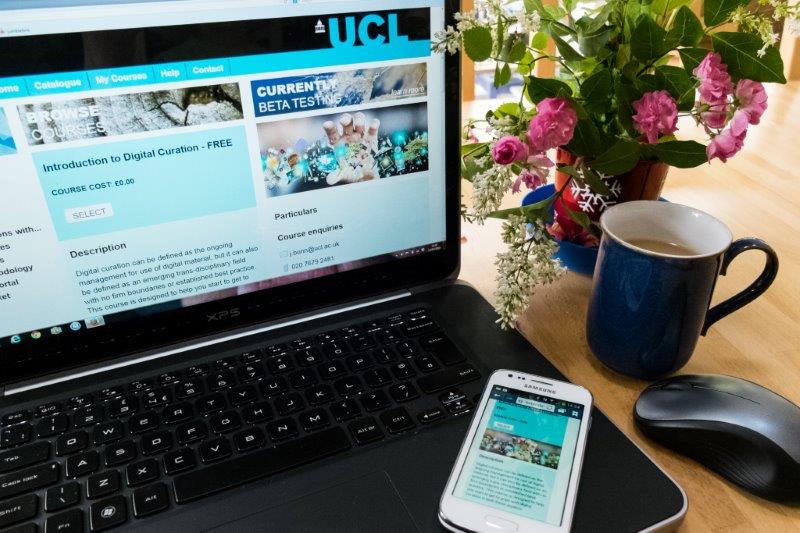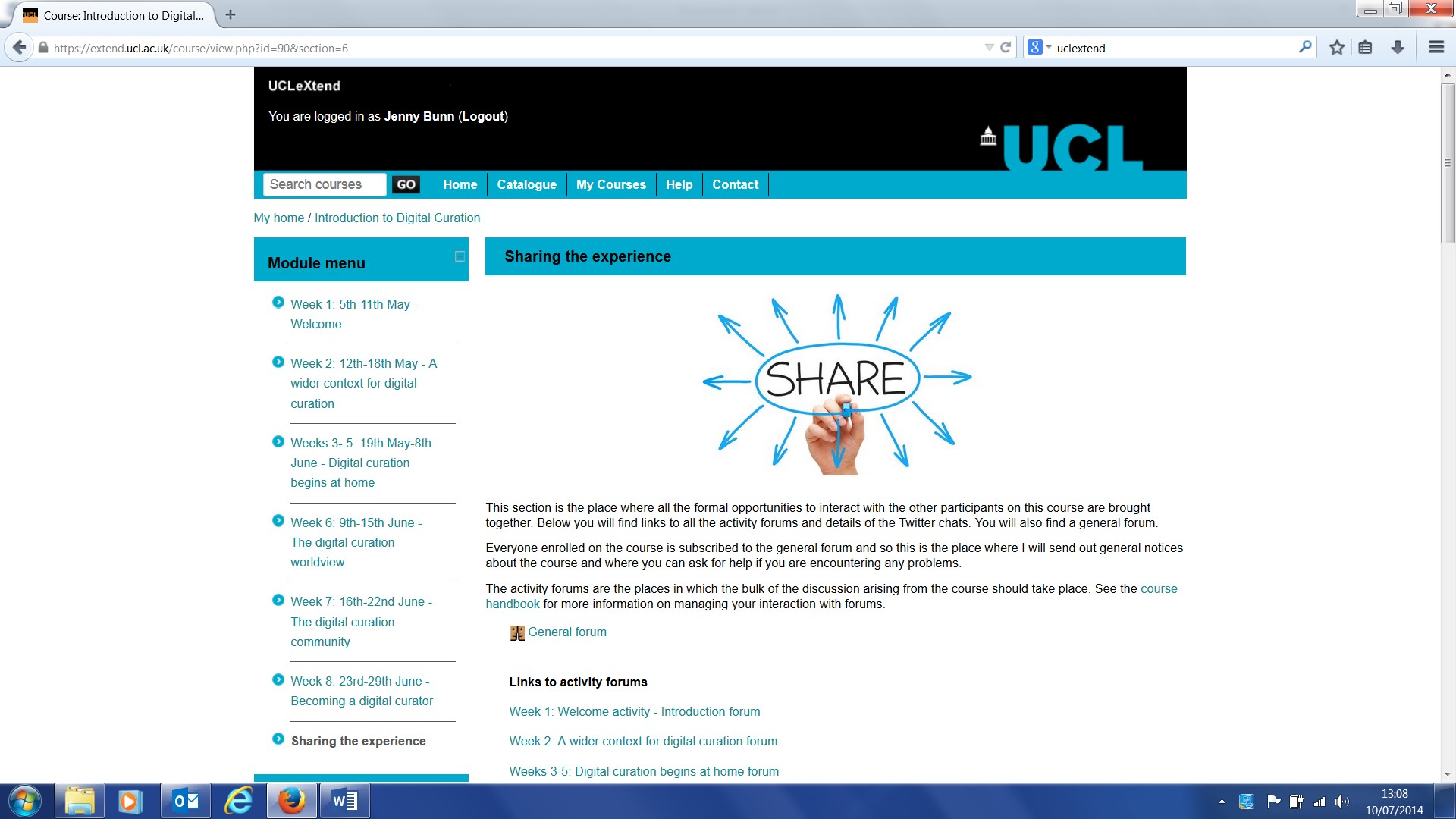In 2013, work started to develop a new module ‘An Introduction to Digital Curation’ to be taught as part of University College London’s MA/Diploma/Certificate in Archives and Records Management programme. This programme has taught new entrants to the archives and records management profession for over 60 years and is one of only a handful of qualifications in the UK accredited by the Archives and Records Association as equipping individuals with the knowledge and skills to work in this field. In the 21st century, this knowledge and these skills clearly need to encompass those of the digital curator or digital preservation specialist and, as such, both the DigCCurr Matrix of Digital Curation Knowledge and Competencies and the DigCurV Curriculum Framework were consulted in the creation of the new module.
 At the same time, UCL were developing a new public facing platform, UCLeXtend, which offered the potential to make learning resources and opportunities available much more widely, beyond the limits of those registered as students within the University. This seemed too good an opportunity to miss, as those developing the new module were well aware (from being a part of the digital preservation community of practice) that there is a need to communicate the basics of digital curation to everyone, not just new entrants to the profession, not just existing professionals, but everyone anywhere who is creating and using digital content in their daily lives. The idea of an open online course in digital curation was born.
At the same time, UCL were developing a new public facing platform, UCLeXtend, which offered the potential to make learning resources and opportunities available much more widely, beyond the limits of those registered as students within the University. This seemed too good an opportunity to miss, as those developing the new module were well aware (from being a part of the digital preservation community of practice) that there is a need to communicate the basics of digital curation to everyone, not just new entrants to the profession, not just existing professionals, but everyone anywhere who is creating and using digital content in their daily lives. The idea of an open online course in digital curation was born.
Development and Delivery The course was developed, with support from UCL’s E-Learning Team, over the course of 2013/14. The audience was defined as ‘anyone curious to learn more about digital curation.’ Clearly this demanded that no prior knowledge or experience of the field could be expected, which meant that the course would be pitched at the introductory level. A structure was defined as follows;
 It was made very clear that the degree to which individuals wished to engage with the course was completely up to them. A number of interesting discussions did take place in the discussion forums (an average of 65 posts a week over the 8 week period), but it tended to be a small core of participants who took part in them. Alternatively some participants chose to blog about what they were doing on the course (and this was presented to all participants as an option), e.g. http://bremweb.postach.io/when-i-finally-got-it-for-uclxidc-the-power-of-community. There was an average of 2438 page views a week over the 8 week period so participants were looking at the course resources, even if they were not actively engaging. From emails received privately it was clear that not everyone felt comfortable engaging in a public way in the various discussion forums, but that they were still finding the course valuable.
It was made very clear that the degree to which individuals wished to engage with the course was completely up to them. A number of interesting discussions did take place in the discussion forums (an average of 65 posts a week over the 8 week period), but it tended to be a small core of participants who took part in them. Alternatively some participants chose to blog about what they were doing on the course (and this was presented to all participants as an option), e.g. http://bremweb.postach.io/when-i-finally-got-it-for-uclxidc-the-power-of-community. There was an average of 2438 page views a week over the 8 week period so participants were looking at the course resources, even if they were not actively engaging. From emails received privately it was clear that not everyone felt comfortable engaging in a public way in the various discussion forums, but that they were still finding the course valuable.
The next steps are to perform a more in-depth evaluation and to reflect on and revise the course with the intention of re-running it in January 2015. At this point it will be run in conjunction with the Introduction to Digital Curation Module which is taught face to face with students on the MA in Archives and Records Management Programme. The aim of developing the course has always been twofold and relates closely to the idea of building a strong community of practice. Firstly, the course allows those who are a part of that community and based at UCL, to make a contribution in terms of promoting and supporting learning in the subject more widely. Secondly, incorporating it within the more traditional teaching of new entrants to the profession will also ensure that those individuals will start, right from the beginning of their training, to learn the skills of interacting with others from many different backgrounds to further a common understanding of the activities involved in and importance of ensuring that our digital memory will be available tomorrow and for the future. This is vital, for without this common understanding, that future will be a lot more uncertain.






























































































































